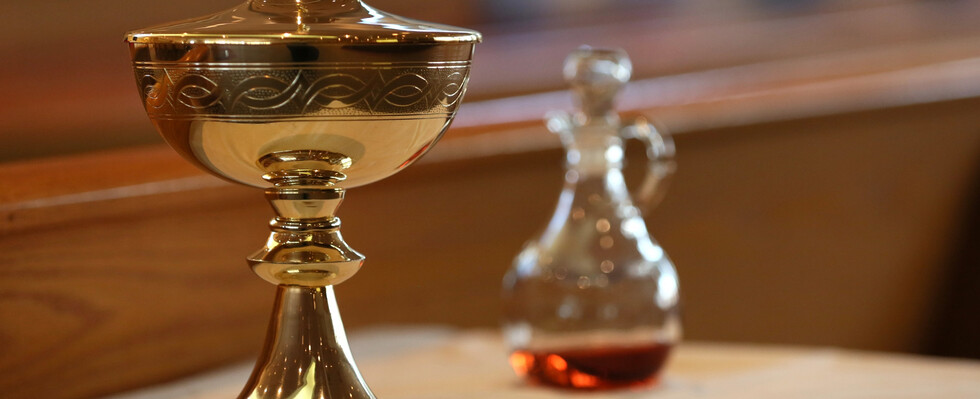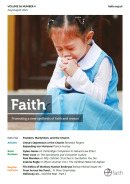Book Review: The Sacraments and Consumer Culture
Consuming the sacraments
Review by Peter Coxe
Our author compiles a series of articles on how “consumer culture” has impacted on the way each Sacrament is celebrated in the developed world and how a richer and deeper Sacramental theology can creatively challenge that culture. Many readers, including myself, may begin by thinking that “consumer culture” refers merely to lavish expenditure, as for example on family parties, gifts, garments and suchlike for Baptisms, Confirmations, First Communions, weddings, Ordinations, etc. However, the author explores far deeper in a well- researched study of each Sacrament, using data from every era of Sacramental theology as well as findings of contemporary (mainly North American) social surveys.
Three features
I pick out three commonly repeated features of consumer culture identified by Brunk: (1) separation from context and community;
(2) transactions with purchasers’ and sellers’ rights; and (3) tailor- making for the individual.
Separation from context and community. For example, a can of beans in a supermarket may seem as if it comes “from nowhere.”
Without careful research, the buyer is unaware of the context in which it came to be, e.g. farming methods, fair or unfair payment of workers, etc. In earlier cultures the market’s produce would have come largely from local farms and the buyer may have even known the farmer who produced it and many others in the community involved in any processes undergone between field and market counter.
Transactions with purchasers’ and sellers’ rights. In a modern shop, any buyer who hands over the product price has an automatic right to take the goods from the shelf. Beyond the stated guarantees and conditions of sale, this transaction confers no further obligations or rights on the supplier or buyer. The buyer leaves the shop with the goods and the matter is closed. Except when the goods turn out to be faulty, there is no further mutual obligation or interpersonal relationship.
Tailor-making for the individual. The individual has the right to choose the product that best suits one’s personal taste. The items selected reflect the kind of person the buyer is.
The early Church
All this impacts on the attitude of many contemporary people to the Sacraments. In the early Church, all Sacraments had a clear community context. Baptisms (followed immediately by Confirmation and Communion in the case of adults), Reconciliation (originally for the most serious of matters after a rigorous period of belonging to the Order of Penitents), Anointing of the Sick, Matrimony and Orders would have involved the whole local Christian community, which would be discerning, praying and/or helping people prepare for these life-changing events and follow up after them.
In the early Church, most Sacraments would have involved long periods of preparation and follow-up. They would not be one-off events, but part of a process of journeying with others in faith. There would also be a strong sense of Sacraments being gifts of God’s grace, and not as “rewards” for passing through various “hoops” (e.g., length of instruction, complying with minimal canonical requirements, etc.). The recipients and the community would have discerned together when the moment was right for receiving the Sacraments and how to continue the journey of faith thereafter.
By contrast, many of our contemporaries risk seeing the Sacraments as mere transactions in which the recipient who fulfils the right terms and conditions has an automatic “right” to receive, with little sense of how the Sacrament relates to the rest of one’s life or to the lives of fellow Christians. For example, First Communion can become a mere single event, rather than beginning a regular life of prayer, sacrifice and weekly Eucharistic nourishment alongside the rest of the community.
In the early Church, the Catechumenate, preparations for Ordination and suchlike would have involved the community. The sacramental celebrations would not have been private individual or family occasions, designed in tailor-made fashion to personal idiosyncrasy (as happens for example in preparation for weddings, where individuals often want to leave their personal “mark” on the unique design of the wedding garments, décor, etc.)
Actions of Christ
The central figure in all the Sacraments is not the recipient, but Christ Himself. The Sacraments, before being actions of the minister, are actions of Christ and actions of the Church. Sacraments change us, not vice-versa. When we receive the Body of Christ, the opposite happens to when we receive common food – we are transformed into Christ’s Body. The reforms of Vatican II, when well applied, bring us back to the true nature of Sacraments. Sacraments are not consumer products divorced from the community or tailor-made to individual tastes. They incorporate us more closely into Christ’s Body.
Occasionally, a provocative statement by Brunk raises my eyebrows as, for example, when he questions the wisdom of highlighting First Communions (when every Communion is highly significant) or of strictly limiting Rite 3 of Penance (where in practice even Rite 2 often fails to be seen sufficiently as a community celebration, with each person leaving the Church after individual Confession and saying a prayer).
Challenging consumer culture
I guess that many a reader will find it refreshing to be reminded of the vitality of the early Church and how we can challenge consumer culture in a way that goes far beyond bemoaning the degree of expenditure and waste. A short review of this nature cannot do justice to the detail and depth of this study, as our author carefully examines each Sacrament.
I finish with a quote from the first page of the Introduction: “Concerning a shared world of meaning,” Bernard Lonergan writes:
For what is community? It is not just a number of men within a geographical frontier. It is an achievement of common meaning, and there are kinds and degrees of achievement…
I leave the reader to enjoy the rest at leisure. Those seeking to study the subject in depth will find the numerous footnotes and the index of persons helpful.
Fr. Peter Coxe is a priest of the Diocese of Plymouth. He has ministered in parishes, chaplaincies and the English College, Valladolid.






